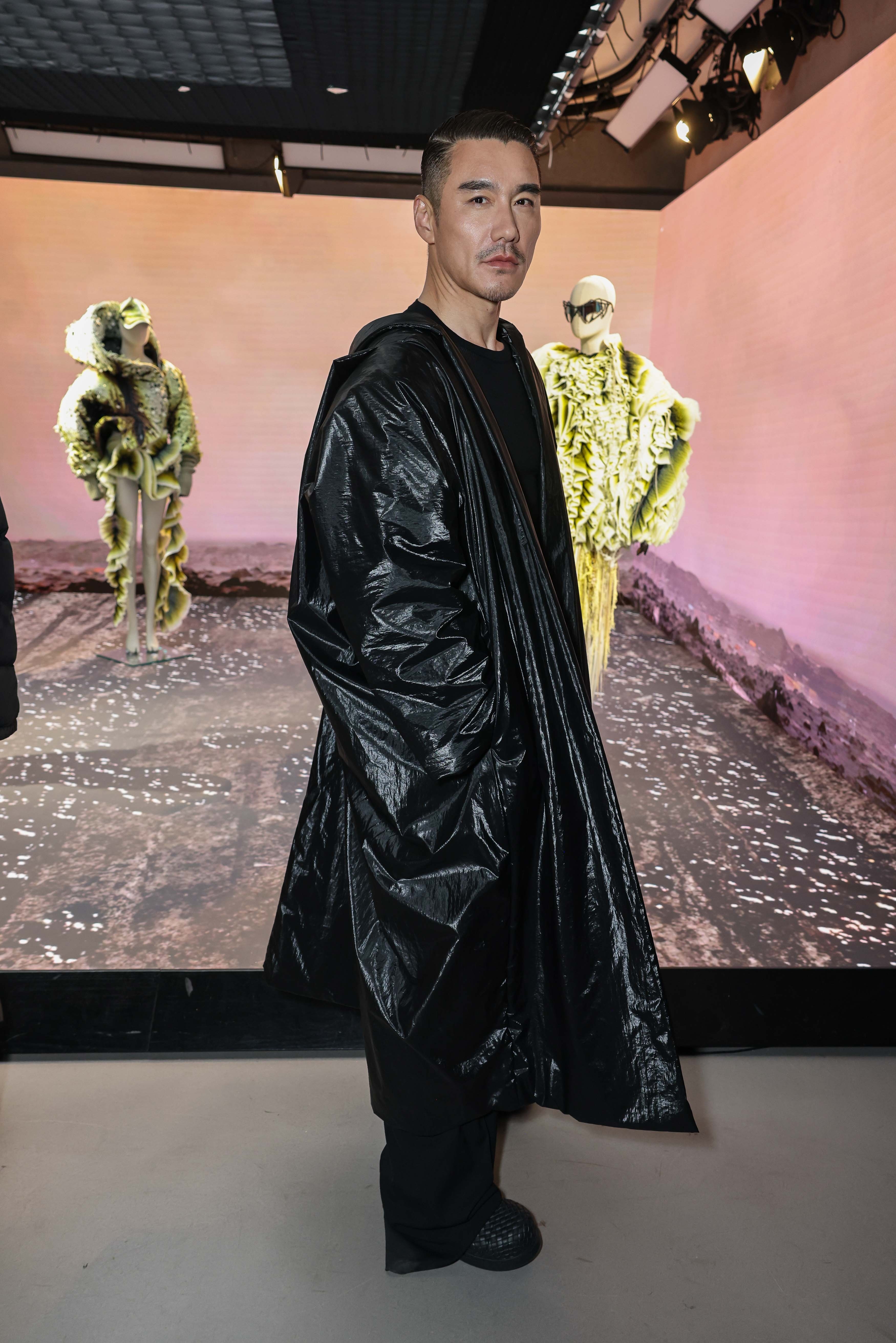During the London Fashion Week Fall 2024 affair, it was not David Beckham or world-famous footballer Bukayo Saka who came second in celebrity influence – rather, Hangzhou-born model-turned-actor and singer Hu Bing.
The Chinese idol’s posts related to London Fashion Week generated $656,000 in media impact value (MIV), according to Launchmetrics, second place to Nigerian star DJ Cuppy who has 9.4 million followers on Instagram.
Despite Hu having fewer than 800,000 followers on Instagram, his influence proves the immense power of Chinese netizens, and why many luxury houses are increasing their partnerships with stars from the mainland.
“In recent years consumer behavior has been changing, with more people seeking inspiration from diverse cultures beyond their borders,” says Alison Bringé, CMO at Launchmetrics. “Naturally, the influence of Chinese ambassadors has increased, with C-pop stars and other celebrities increasingly partnering with brands for ambassadorships and fashion week shows.”
K-pop remains the dominant fan-led marketing driver to come out of Asia – the presence of idols BlackPink’s Jennie and Jisoo pushed Chanel and Dior to be the top performing influencers, in terms of engagement, at the most recent Paris Fashion Week.
However, C-pop is gaining recognition as a global partnership opportunity, and an element of localized strategies.
In comparison to South Korea, Chinese pop music culture has struggled to gain global prominence. The South Korean government’s focus on K-pop becoming a global force helped propel the genre ahead of C-pop, yet, the burgeoning number of luxury house appointments prove its worth is increasing.
Take best-selling Taiwanese artist Jay Chou for instance. This year alone he’s taken up brand ambassadorial roles at Dior, La Mer, and Rimowa.
Other C-pop artists in luxury’s crosshairs are Hong Kong rapper Jackson Wang, who following stints with Fendi, Cartier, Armani Beauty, and Rayban, was named Louis Vuitton global brand ambassador last year, and Chinese rapper and singer-songwriter Lay Zhang, who works with Qeelin, Hublot, Sprite, Fila and Bang & Olufsen as a global representative.
And domestic singer-songwriter Roy Wang became global brand ambassador for Swiss luxury house Bally in July 2023, expanding his portfolio of appointments.

“Luxury brands can be confident in appointing C-pop stars as global ambassadors to increase their reach and awareness among Chinese consumers,” President of Reverse Group, Anaïs Bournonville, tells Jing Daily.
After all, as the world’s second largest luxury goods market, China is a core focus for brands and these ambassadors are an obvious vehicle to connect directly with Chinese consumers.
For example, Jackson Wang’s posts mentioning Louis Vuitton garnered $2 million in MIV in Q1 2024, partly attributable to his presence on Western platforms.
On Instagram, Wang has 32.9 million followers, similar to that of other chart-topping global stars like Olivia Rodrigo (37 million), or Megan Thee Stallion (31.8 million) – but over on Weibo, the hashtag of his Chinese name Wang Jiaer (王佳儿) has 23.3 billion reads.
“We are talking about a consumer group of 1.4 billion people, which shouldn’t be forgotten by luxury brands,” says Bournonville. “I feel the decision of Dior to appoint Jay Chou as its brand ambassador, for example, improved brand sentiment among local consumers and the Chinese diaspora worldwide.”

Launchmetrics reported that Chou’s posts mentioning Dior generated $689,000 in MIV in Q1 2024. The 45-year-old “King of Mandopop” might have been a best-selling artist for a while, but it seems that his influence is soaring in 2024. He is La Mer’s first-ever male ambassador. Prior to the Dior role at the end of last year, his partnerships had only comprised brands such as Tudor Watches, Oreo, and Moutai.
C-pop stars might be taking off on a global scale, but there are risks that come with working with key opinion leaders (KOLs) that brands must take into consideration, especially considering the unforgiving nature of Chinese netizens.
Pop star Kris Wu, for one, was working with Bulgari, Porsche, Louis Vuitton, and Tencent’s King of Glory when he was “canceled” amid rape allegations in 2021. The brands all dropped him very quickly.
In other scandals, Chinese idol Cai Xukun was representing Prada, Tag Heuer, and De Beers in 2023 when accusations of him coercing a woman to have an abortion surfaced, and Prada dropped ambassador Zheng Shuang in 2021 after it was reported she had abandoned two surrogate babies, and evaded taxes.
These last two furors prompted Chinese netizens to coin the phrase, “Prada spokesperson curse.”
Now taking a safer route, the house is working with the Chinese women’s football team in an official partnership.

Bournonville believes that athletes might be a more reliable option as luxury brand ambassadors: “I would recommend brands to work with C-Pop stars to increase their brand exposure, and to consider Chinese athletes to improve their marketing stability. Naming an athlete as a brand ambassador is a safer choice as their drive for excellence aligns with the brand image.”
The rise of Chinese stars as global ambassadors signifies not just a marketing trend, but a cultural phenomenon reshaping the dynamics of the fashion industry.
As luxury brands continue to navigate this evolving landscape, the strategic alignment with Chinese ambassadors presents not only unparalleled marketing opportunities, but also a bridge to connect with an increasingly influential consumer demographic.
Credit: Source link
